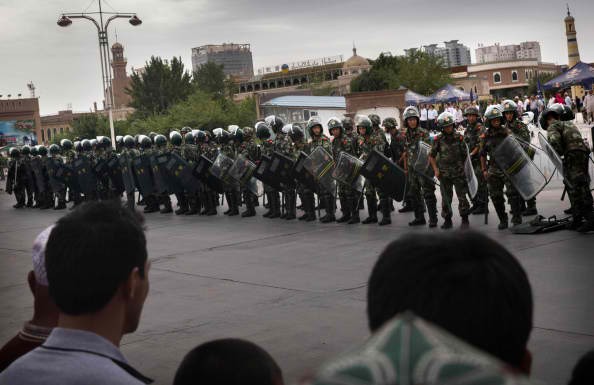Chinese law enforcement authorities in northwestern China's Xinjiang autonomous territory have ordered residents to install satellite tracking devices on their vehicles as part of the government's crackdown on terrorism in the region.
The compulsory measure, which will come into effect this week and is expected to affect hundreds of thousands of vehicles, is being implemented by the Bayingolin Mongol Autonomous Prefecture of Xinjiang, a sprawling region that sees sporadic bouts of violence which the government blames on radical Islamists.
The cars have been report the primary means of transport for militants, according to a report from the BBC citing police data.
Drivers in the Bayingol who refuse to install the devices will not be allowed to purchase fuel, the report said.
Xinjiang has seen a series of bombings and knife attacks in recent years. Beijing blames the attacks on separatist elements of the region's large Muslim Uyghur minority, although many experts claim that it is also fueled by ethnic tensions between Han Chinese migrants and Muslim Uyghurs.
The government denies any repression in response to any terror attack in China today.
The vehicle-tracking program will make use of China's indigenous Beidou satellite navigation system, which was developed to lessen the country's reliance on the U.S.'s global positioning system (GPS).
It would also help car owners to locate their vehicles quickly if they are stolen, according to local Chinese media.
Security in Xinjiang has intensified after five people were killed by three assailants in a knife attack last week.
The attackers were shot dead by police.
Local security forces held an anti-terror rally on Saturday, parading hundreds of armed men through the streets of Urumqi, the region's capital.
In June, Xinjiang police ordered residents to provide DNA samples and other biological data as requirements for applying for travel documents.
The move, which Beijing said was meant to combat terrorism, came under criticism by human rights groups.



























